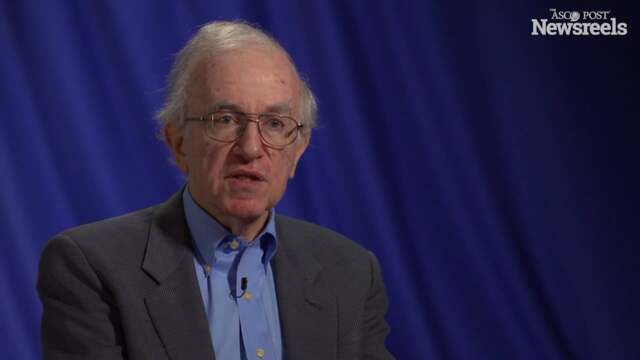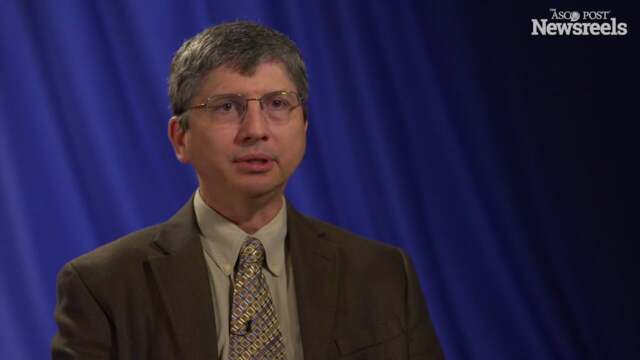Betty Ferrell, PhD, RN, on Depression and Cancer Care
2015 Palliative Care in Oncology Symposium
Betty Ferrell, PhD, RN, of City of Hope, discusses two papers that look at an important issue from different perspectives: depression and anxiety among family caregivers of patients with advanced cancer, and the link between oncologists’ dispositional affect and depressive symptoms in their patients with metastatic cancer (Abstracts 224, 214).
Anthony L. Back, MD
Anthony L. Back, MD, of Seattle Cancer Care Alliance, summarizes a general session on best practices and novel tools for enhancing communication between patients and oncology providers (Abstracts 8,9, 39).
Judith Vick, MD Candidate, and Rachelle E. Bernacki, MD
Judith Vick, MD Candidate, of Johns Hopkins University School of Medicine, and Rachelle E. Bernacki, MD, of Dana-Farber Cancer Institute, discuss a tool that could help clinicians identify seriously ill patients who would benefit from conversations about their goals and values (Abstract 8).
Eric Roeland, MD
Given the challenges of recruiting patients for palliative care studies, Eric Roeland, MD, of the University of California, San Diego, discusses a way to increase the participation of those with cachexia, with the hope of improving treatment (Abstract 67).
Lawrence H. Einhorn, MD
Lawrence H. Einhorn, MD, of Indiana University Simon Cancer Center, discusses the ways in which a dedicated palliative radiation consult service can improve the quality of palliative cancer care (Abstract 110).
Ralph J. Hauke, MD
Ralph J. Hauke, MD, of Nebraska Cancer Specialists, discusses the application of scientific analysis and research to palliative care issues, which will allow better prognostication, implementation of measures, and improved quality of life.





